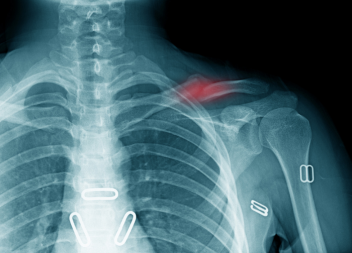Incisional hernias are a recognised risk of abdominal surgery and are mostly unavoidable. But while hernia repair surgery is a common procedure, failures are too and can lead to further injuries to patients.
One of Miriam Bi’s clients who suffered a substandard hernia repair surgery in 2014 was forced to endure two further corrective operations. This resulted in almost four years of pain and discomfort which was ongoing when the claim settled. Our client was awarded £190,000 in compensation after the defendant trust admitted that the way in which his initial surgery was performed fell below a reasonable standard.
Our client ‘C’ was referred to hospital in November 2013 with swelling to a scar on his abdomen from previous surgery over six years earlier for a perforated peptic ulcer. C had intermittent pain and felt a clicking sensation when pressing the lump.
His GP thought it was a small hernia which was confirmed by a consultant general surgeon at the hospital. C was told mesh would be needed to repair the incisional hernia, however surgery was delayed due to unforeseen circumstances. The plan then changed to do the surgery without mesh.
C finally had the operation the following August and was kept in a few extra days due to post-operative complications including an infection.
Two months later, C’s GP wrote to the surgeon that C had been left with a much bigger hernia than before the surgery and needed to be seen sooner than the routine follow-up. The hernia was thought to be the size of an orange and was causing C a lot of discomfort.
C was seen two weeks later by the surgeon who confirmed the hernia was slightly bigger than before. C requested this be re-repaired and the corrective surgery was performed eight months later in July 2015.
During surgery, it was found the hernia contained parts of C’s small bowel, transverse colon and stomach tissue that had protruded through the weakened abdominal muscles. This time, mesh was used to strengthen the hernia repair. C was left with pain and a large build-up of fluid under the skin that he was told would take between 18-24 months to reabsorb.
By March 2016, C had been referred back to the hospital again by his GP with a persistent ache to the mesh repair site. A CT scan confirmed this was a recurrent incisional hernia above his navel that had a wide neck and contained small bowel loops.
C waited 15 months for the second corrective surgery which eventually took place in June 2017. The initial mesh was removed and replaced with a larger piece. A number of pins were left in situ as well as some of the original mesh which had fused to his bowel.
After this, C should have been seen for a check-up within a month but he wasn’t seen for almost a year as the initial appointment requested was not actioned in a timely manner. A complaint was raised by Miriam to the Trust’s legal team and the follow-up was arranged. An apology was made as C had been lost to follow-up. However, when C did have his check-up in May 2018, a CT scan showed no recurrent hernia but he was told he would have ongoing pain and discomfort due to the multiple invasive procedures he’d undergone.
C brought a claim for clinical negligence against the defendant ‘D’ who admitted breach of duty on the grounds that the initial repair in August 2014 was not performed to a reasonable standard. This led to recurrent hernias which caused the need for repeated surgical repairs. After liability was admitted, C’s claim for damages was negotiated and the claim settled at a Joint Settlement Meeting with both parties instructing Counsel.
Please Note: At Medical Solicitors, our experts handle surgery claims involving healthcare providers in England and Wales and will be happy to extend a helping hand if your case is located in either of these regions. Unfortunately, we do not handle surgery claims outside of England and Wales.








